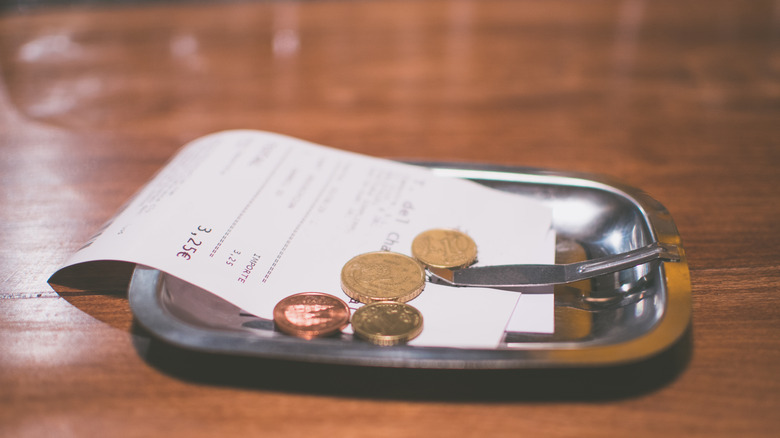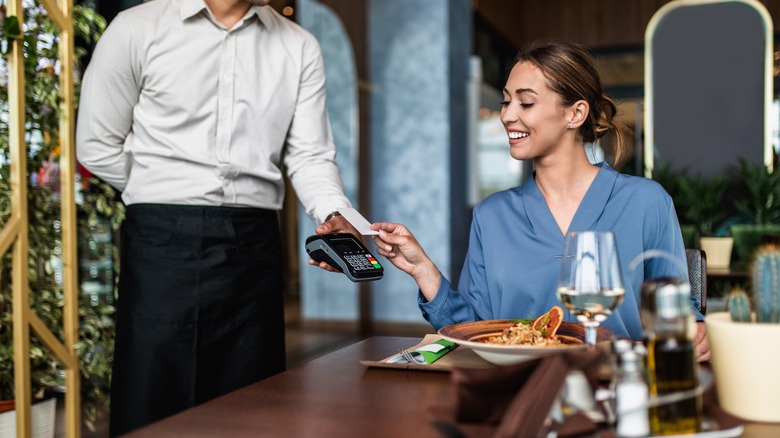Cash Or Credit Card: Which Is Better For Tipping?
The custom of tipping restaurant servers in the U.S. is a hot-button issue. Some argue that you should not tip because it is the responsibility of restaurant owners to pay their employees a living wage. Others say you should tip, though, because servers don't get paid much, and they are providing a service. The average wage of a server in the United States varies depending on the state and establishment, but servers are typically paid a minimum wage that is lower than the standard minimum wage, and they rely on tips to make up the difference.
Per federal law, workers who receive tips must be paid at least $2.13 per hour, according to the Economic Policy Institute. However, some states and cities have enacted laws for higher minimum wages for tipped workers. If you are someone who believes in tipping servers, regardless of how much they are paid, then you probably want to know the basics, like how much you should tip and if you should tip them on your credit card or if that tip should be paid in cash.
Processing fees take money from servers
When it comes to tipping or not tipping, tipping is always better than not leaving a tip, and both cash and credit cards are acceptable methods of leaving a tip. Plus, tipping via credit card can be more convenient for consumers since most people don't carry cash anymore. That being said, cash tipping is often preferred by service industry workers because it allows them to receive their tips immediately and may be more convenient for them. It's also a good option if you want to ensure they get the full amount of the tip.
Servers often have to pay fees on credit card tips because the credit card processing company generally charges the dining establishment a processing fee. This fee can be a flat rate, like 3%, or a percentage of the total bill, including the tip you leave. Many restaurants pass on this fee to the server by deducting it from their tip, which means they don't get the full amount you left them.
Other credit card tipping issues
There are other issues with leaving your server a tip on your credit card. For one, when you tip on a credit card, the processing may be delayed, resulting in the server not receiving the tip until their next paycheck. Second, there is always a risk of human error when entering tip amounts on a credit card if a restaurant has a system that requires a server to manually input the amount. For example, if you tip $20, the server could accidentally add an extra zero to the amount, charging you $200, instead, so you end up paying more than you intended.
Then there's the issue of tip-pooling, where servers share their tips. When a server is paid in cash, they are less likely to have to share the tips they receive with other employees because it can be hard to prove how much they were given, but credit card tips are often pooled and split among the entire staff in establishments that participate in tip-pooling. In the end, if you want to ensure that servers walk away with a tip for their hard work, you should plan to tip in cash or tip more than the customary 15% to 20%.


